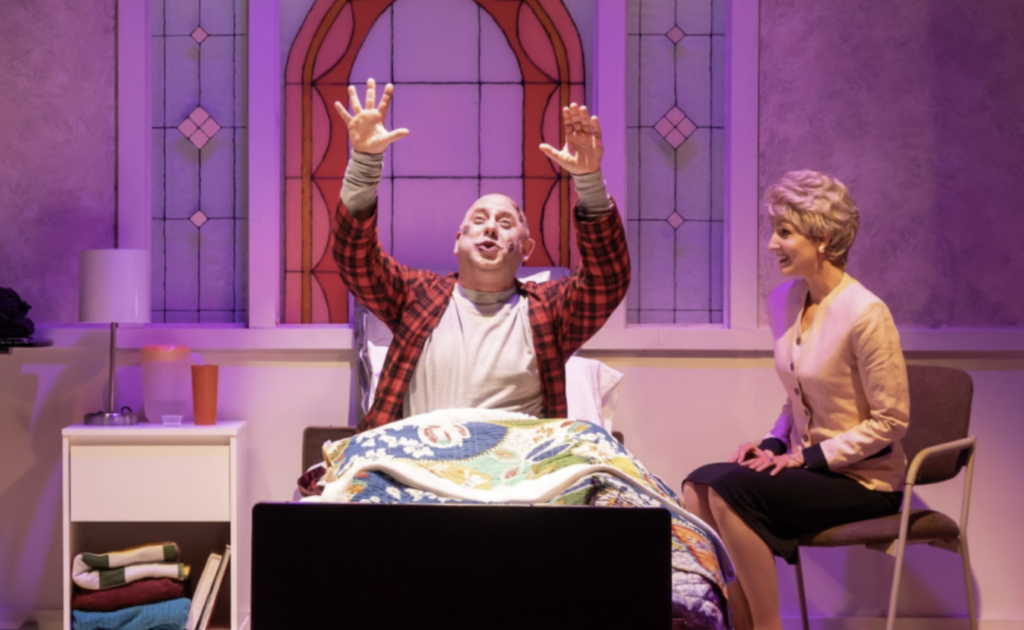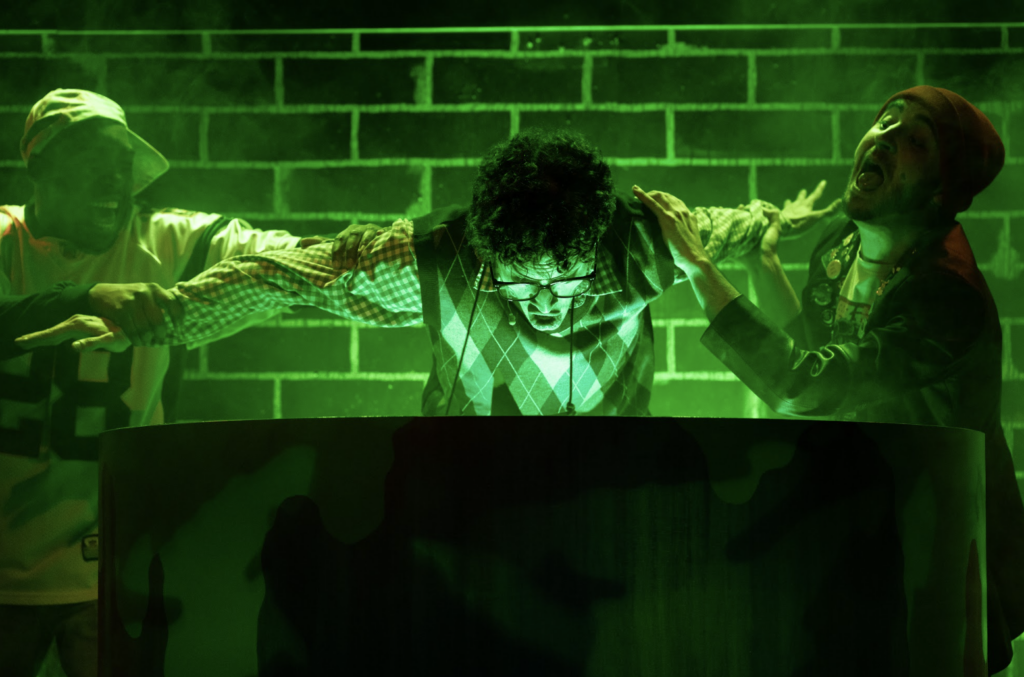KCAT’s Smart People overthinks an ambitious conversation on race relations
Discussing race in America is complicated. This statement serves as an easy platitude for undigested cultural criticism, akin to The Simpsons gag: “In conclusion, Libya is a land of contrast.” When assigned to broach a complicated topic, to avoid processing any of the information or arriving at even the most basic of resolutions is a bigger intellectual crime than ignoring a problem altogether. Films, TV, and the stage are overwrought with examples of examining our nation’s unresolved gaping wound, and a recent wave—riding the crest of white audiences finally inviting these conversations into their entertainment—has done little to improve the consistent quality of that tide.
Or more simply: how many times has a story invited you to observe a group of people attempting to discuss racism, only to find that the material either has nothing to say, or says its piece in such a clunky way that it borders on the comedic?
The play Smart People ran throughout January at Kansas City Actors Theatre. It was a story that invited you to observe a group of people attempting to discuss racism, with material that had something to say, but said its piece in a deliberately clunky way to reflect just how farcical the situation becomes when Americans think they can talk their way through racism. The premise of ‘well-meaning’ clever people believing they, personally, might be able to solve a systemic failing makes for some interesting situations, but unfortunately doesn’t land as a successful full production.
Directed by Ile Haggins and written by Lydia R. Diamond, Smart People self-describes as so: “Four highly educated friends gather on the eve of Barack Obama’s 2008 election to attempt to navigate the tough questions about race, and examining their biases through a lens of their backgrounds and their education.”
This description is going to be important again in a moment, because it is something of the hinge where this all falls apart.
The cast of characters includes a Harvard professor of neuroscience, Brian (Brian Paulette), who thinks he’s cracked proof of racism in brain chemistry and hopes to use his results to shame white people (and academia) into doing better. There’s Ginny (Ai Vy Bui), a psychology professor with a luxury shopping addiction. Valerie (Ashley Kennedy) serves as a young actor, who, having just recently gotten her MFA, spends her days cleaning houses before heading to Ibsen and Shakespeare rehearsals. Then there is Jackson (Terrace Wyatt, Jr.), a young Black surgical intern who feels targeted by his superiors because of his race and who also somehow manages to find the time during his residency for a side gig running a clinic for patients without insurance.
The show itself plays out over the course of nearly two years. Now, flashing back to its own plot descriptions, this uh… isn’t that? Is the marketing copy of a piece of entertainment a measure by which to judge it? Yes, when it is presenting how it understands itself to exist. Within that wording is not just an oversimplification of the narrative, but a summation that describes another show entirely. Obama’s election is tangential to one scene that is set at a dinner party among friends, but the friends in question—at the end of the show—barely know each other, and the election itself is never discussed.
In fact, the most useful and certainly most direct implementation of time period and political throughline involves one character canvassing for the president-to-be, but during the primary when her loyalty is questioned by a homeowner in relation to choosing between a Black Democrat or a female Democrat. Why else would this show need to be set in the year(s) that it is? Apparently in this case to end the show, not with the characters and any kind of resolution, but instead with a recording of Obama’s inauguration address.
The real shame of the matter is that this four-person cast absolutely bowls over the material with their tremendous performances. While their portrayals elevate the show beyond the humdrum affair we could have been trapped inside, they’re still hindered by the limitations of the work. More than once, a scene that veered on the page into clunky, abrasive territory was more than saved by the life and interpretation in the delivery. While that could turn around individual scenes, there’s no way to act one’s way out of a full concept that never comes close to sticking the landing.
This scattershot set of scenes more accurately rotating around the question of biology in racial discrimination is a better example of a narrative work being unable to grapple with complicated questions, not of people themselves. For a production that wants to highlight the frustrating mess of the matter, it leaves the audience little to grapple with afterward—instead suggesting that the entire endeavor was, and always will be, as unproductive. Is it enough that the show thinks that missing the mark is part of the point? If that’s what it wants to be, then sure, mission accomplished.








